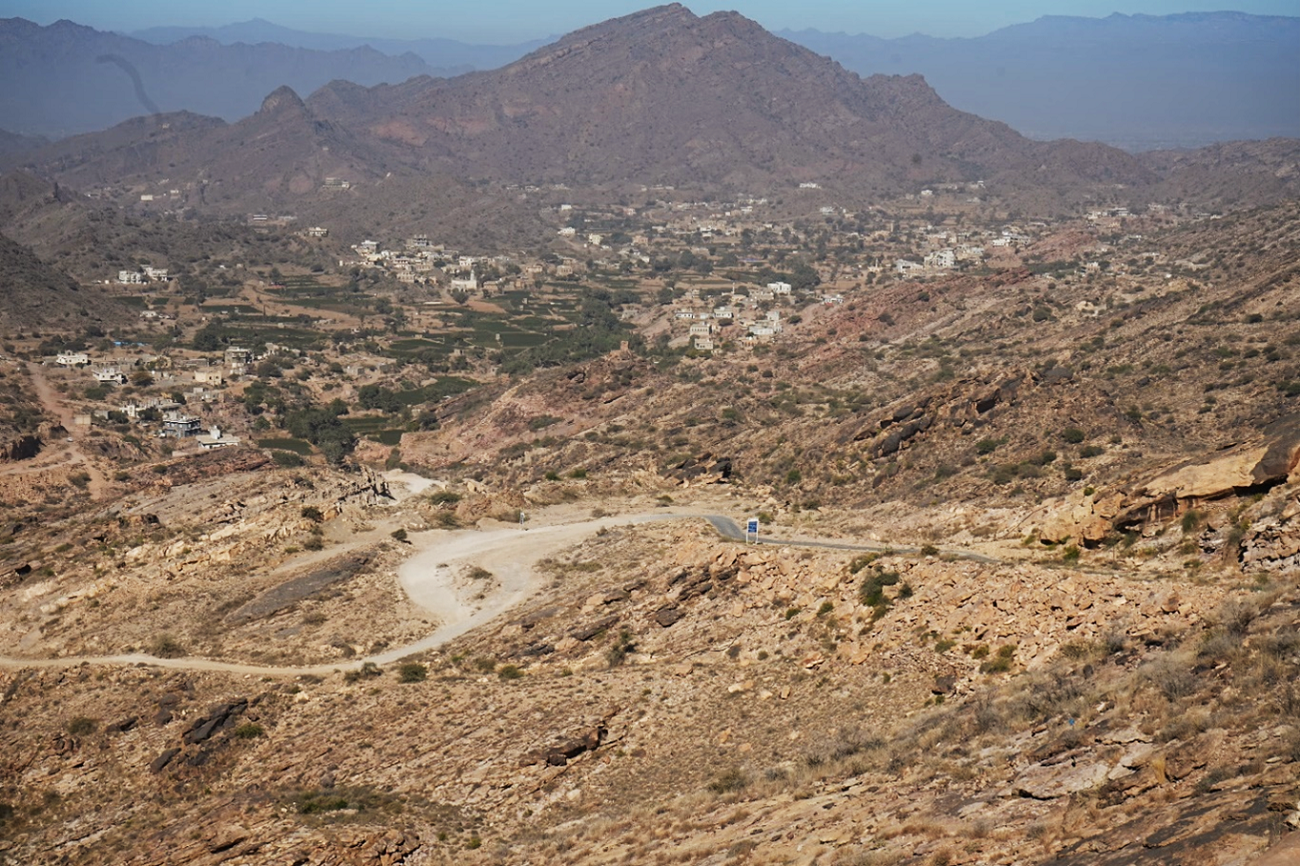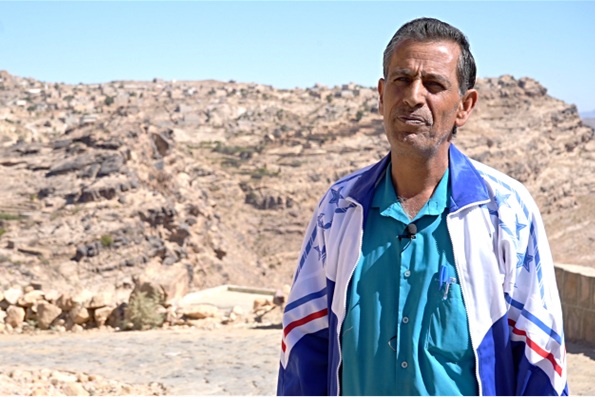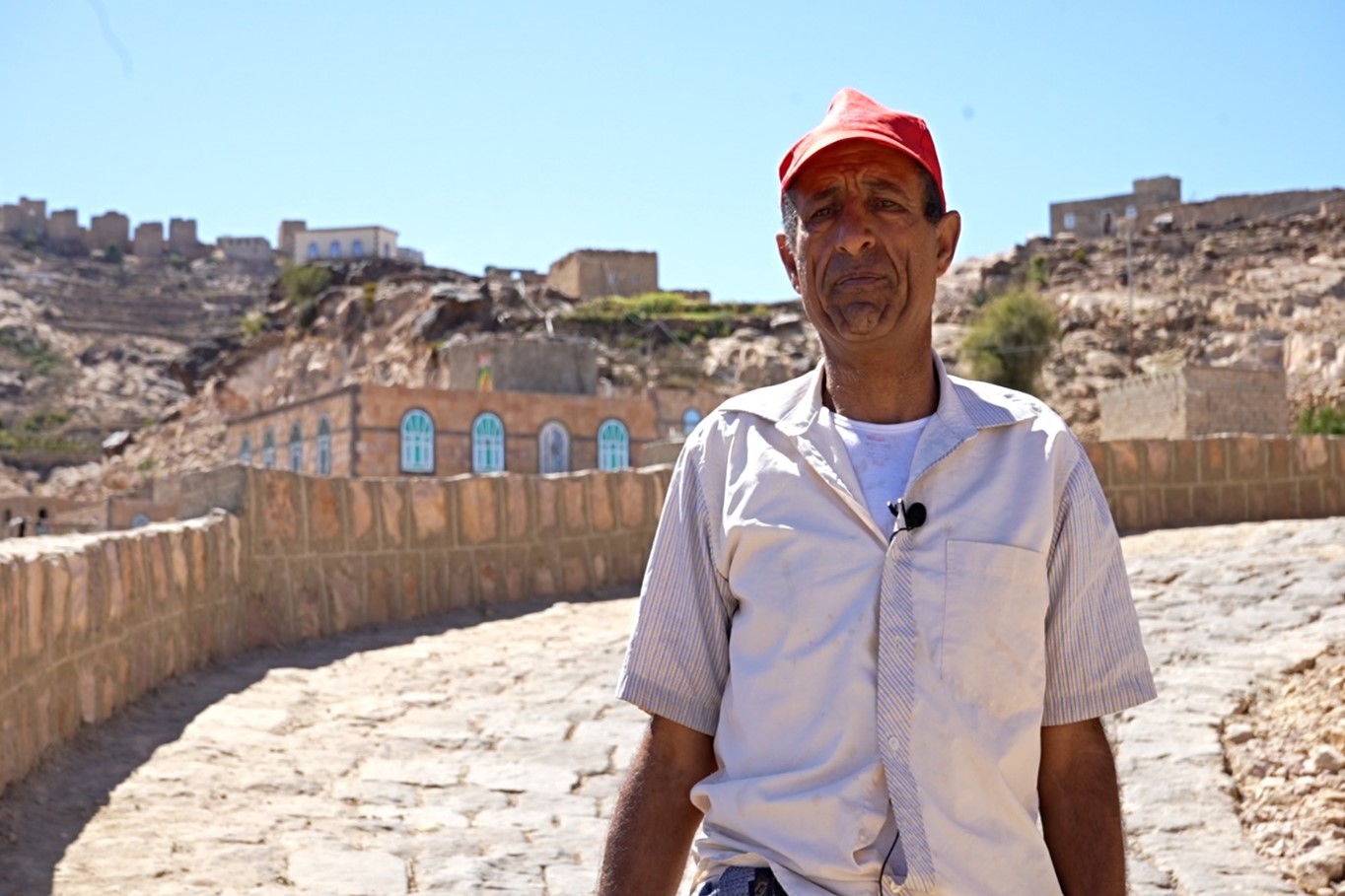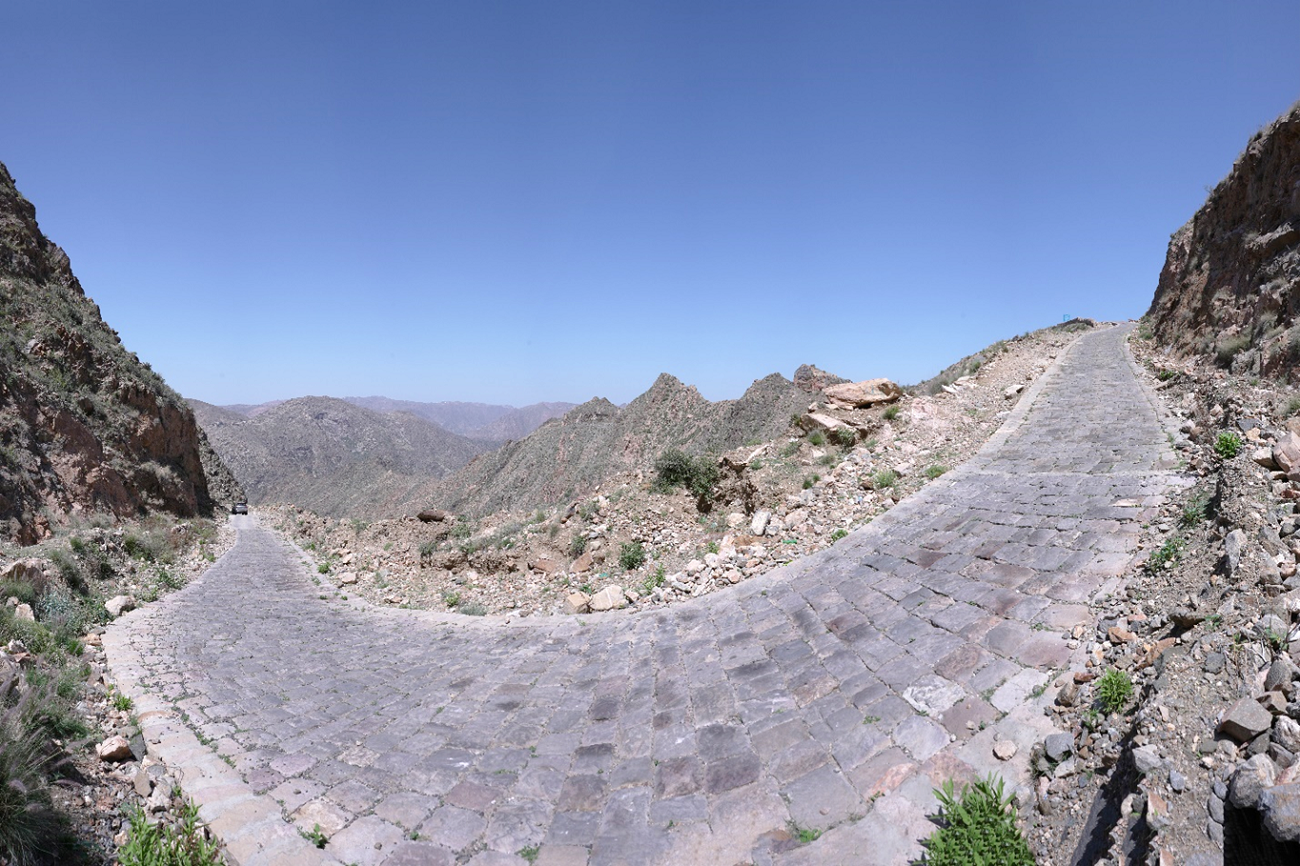In the heart of the Al Hussein District in Al-Dhale province, southern Yemen, lies Harir mountainous road. The ragged road to Harir Village, home to nearly 2,135 families, is the primary lifeline that connects it with eleven villages in the region. It is also a secondary road to ten other villages.
Harir Road has suffered from damage and neglect over the years, with conflict and a lack of regular maintenance rendering the road nearly impassable. Moreover, heavy rains and floods destroyed large segments of the road, throwing huge mountain rocks onto the road and causing potholes. The extensive damage on the road hindered people’s and vehicles’ mobility and disrupted access to essential services such as markets, health facilities, and schools.
The eight-year conflict in Yemen has caused thousands of casualties and displaced over four million people. Over 80 percent of the country’s population struggles to access food, safe drinking water, and adequate health services. The impacts of Yemen’s prolonged conflict extend beyond casualties and displacement as civilian infrastructure has been severely damaged. Roads and bridges, including on main supply routes, have been damaged or closed, hindering the movement of residents, goods, and humanitarian assistance.
In rural areas, economic deterioration and lack of income and jobs further challenge families’ ability to make ends meet. Poor roads mean increased food prices, transportation costs, and living expenses. For instance, families in remote areas often have to make the hard decision of either spending money on transportation to access schools or health facilities or buying food, forced to prioritize the latter.



